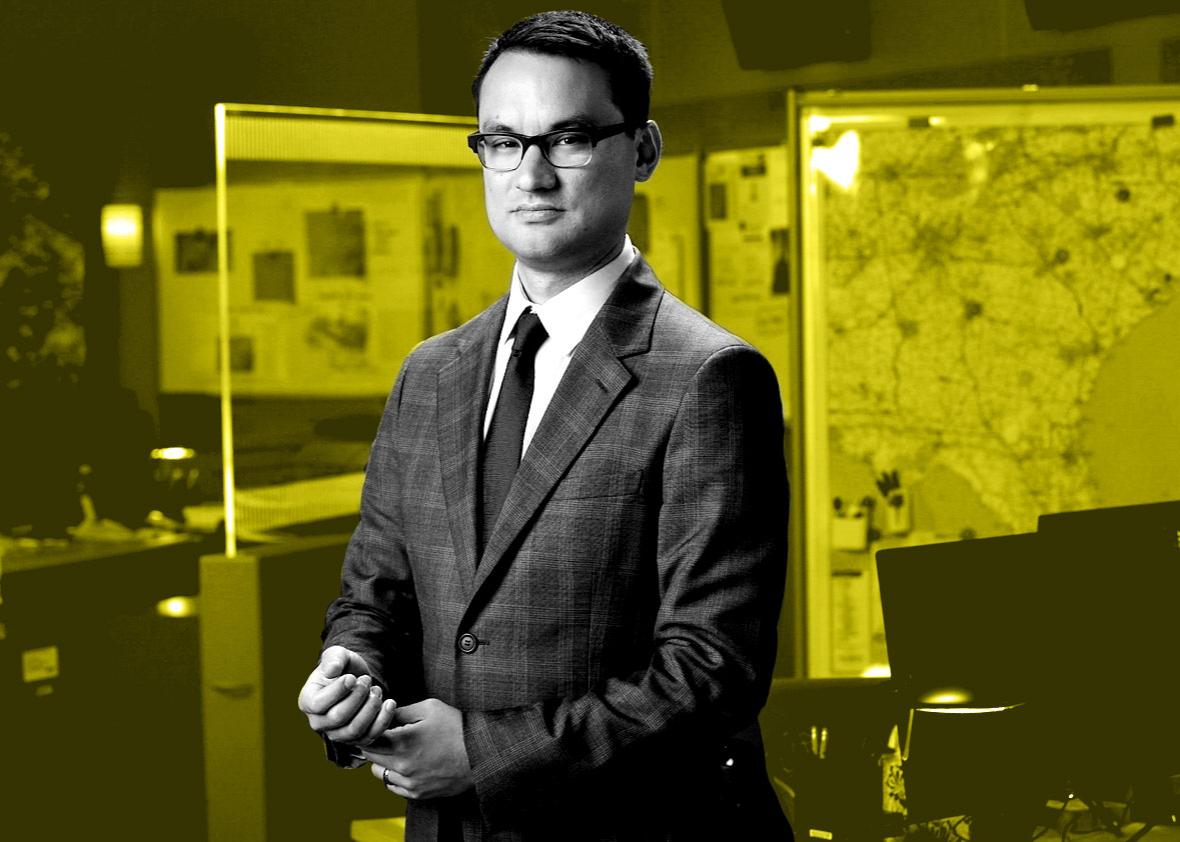Listen to this episode of Working with guest Aki Peritz:
Subscribe in iTunes ∙ RSS feed ∙ Download ∙ Play in a New Tab
Slate Plus members: Get your ad-free podcast feed.
This season on Working, we’re speaking to individuals employed in fields potentially imperiled by the Trump presidency. These are the stories of people doing difficult but important jobs—jobs that may get much more difficult and much more important in the years ahead.
Even before he took office, Donald Trump was famously dismissive of the efforts of the intelligence community, dismissing its efforts and skipping out on briefings. Since his inauguration, he hasn’t been much better, continuing to treat the Central Intelligence Agency as a mere tool.
To better understand what intelligence work—work Trump barely seems to recognize as work—actually involves, we spoke to Aki Peritz. Though he’s no longer with the CIA, Peritz worked on counterterrorism issues in the years after the Sept. 11 attacks. “The world is full of noise,” Peritz says, explaining that his job was to help policymakers come to informed conclusions. “What an analyst tries to do at the CIA is take all that noise and boil it down to 400 words.”
As he tells us in this episode of Working, that means he spent a lot of time processing information that came in from the operations side of the agency, those doing the actual fieldwork. Much of that material arrived in the form of interview notes culled from so-called “human intelligence” and Peritz’s job was to work through it and craft it into digestible, but also accurate and actionable, chunks. Those abbreviated reports that would go through multiple rounds of revision before they made it to anyone in a position of real power—but sometimes they just might make it into the president’s briefing book by the time they’d reached the end of their journeys.
At core, then, Peritz’s job with the CIA involved a great deal of reading and writing. “Intelligence is still a very text-based industry,” he tells us. As we learned while chatting with him, the intelligence community leans heavily on acronyms and jargon. So much so, in fact, that Peritz suggests an ability to negotiate it—to walk the talk, as it were—is one of the things that distinguishes real intelligence professionals from poseurs. But it also means learning to strip your writing of any semblance of style, since “adjectives and adverbs create doubt,” and the analyst’s goal should be—in Peritz’s telling—to offer as unvarnished as possible an account of the truth.
As in any job, he says, “you are opened up to a world you think you understand, but you don’t really understand.” Much of the actual work is dull, he admits, but there are also experiences that you couldn’t have if you were working at a think tank or on Capitol Hill. “It’s buttoned up, but not too buttoned up,” Peritz says of the environment. A lot of the men would keep a suit and tie in a closet, though, just in case they had to meet with someone important. And at lunchtime, they’d make their way to a surprisingly well-appointed cafeteria where everyone, including the servers, had a security clearance.
At this point, Peritz suggests, it’s too early to say whether Trump will actually listen to the CIA or otherwise draw on its insights. “Right now we’re in this feeling out period where the CIA [and] the intelligence community writ large, is trying to determine its place in the firmament of the US government with a new president in charge.” Part of what’s at issue is that it’s not wholly clear how Trump consumes information. Though the briefs that Pertiz wrote during his time with the agency were, in fact, brief—typically coming in, he suggests, around 400 words—it’s possible that even that much verbiage may be too much for the Twitter-addicted and TV-hungry president.
Then, in a Slate Plus extra, Peritz tells us about Hunted, the CBS reality show on which he’s currently appearing. If you’re a member, enjoy bonus segments and interview transcripts from Working, plus other great podcast exclusives. Start your two-week free trial at slate.com/workingplus.
Email: working@slate.com
Twitter: @Jacob_Brogan
